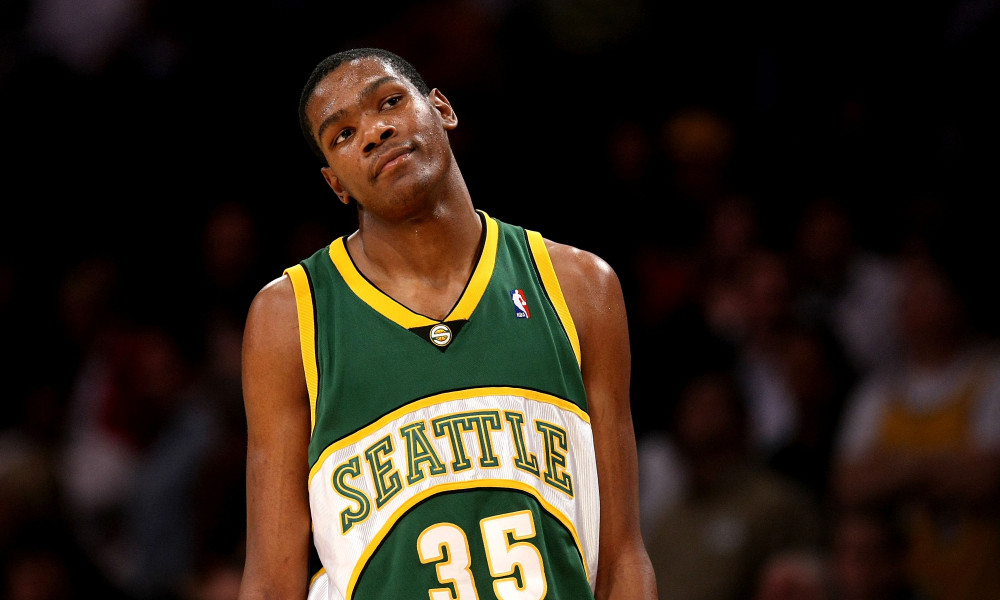
With the NBA Finals underway and the NBA bubble nearing its close, I thought it a good time to pick up one of the more unique basketball books ever written: David Shields’ Black Planet: Facing Race During an NBA Season.
Part of what makes it unique is that Shields is generally more interested in bending genres than writing about sports. With over twenty books to his name, the only ones dedicated to sport are Black Planet and a book on Ichiro. Shields does not shy away from collage, collaborative writing, biography (his co-authored book Salinger was turned into an accompanying documentary), quarrel, intervention, manifesto, or simply making stuff up, so I was very curious to see how he would tackle the NBA.
Moreover, with the admirable and persistent effort of NBA players to continue their social justice work while finishing up the season in the bubble, it seemed an even more appropriate time to delve into Shields’ book on race and basketball.
Black Planet takes the form of a daily diary. Shields received a press pass to cover the Seattle Supersonics for the 1994-95 season for The Seattle Weekly. The book serves as Shields’ account of the season, but Shields is just as interested in what surrounds the Sonics as what happens in the games.
Given the Supersonics subsequent move to Oklahoma City in 2008 (ten years after Shields’ book was published, and thirteen years after the Sonics’ season Shields observed), Black Planet is a historical document, in a way, that other sports books are not. Given that the next generation of NBA fans will have likely never seen a Sonics game, maybe never even heard of them, Shields’ book felt important; akin to reading a book about the Syracuse Nationals, perhaps, or the Rochester Royals.
Of course, many of us still do remember watching the Sonics (and blessedly Shields’ book takes place during the Sonics’ heyday), so the book was equally fun in this regard. It was easy for me to picture Detlef Schrempf disparaging the refs, for instance, in just the way Shields describes.
The book also correlated nicely with this summer’s The Last Dance, which offered exciting highlights and reminders as to how great those Sonics teams were. It was equally awesome to watch Jordan and Payton talking trash in The Last Dance twenty plus years later, as middle-aged men.
Gary Payton, in fact, is the main obsession in Black Planet. Shields fawns over him in a way that is almost creepy, and twenty years later could definitely be thought of as exoticizing, even eroticizing. Nevertheless, Payton’s allure shines through, and it was easy for me to remember, and re-envision, how tremendous The Glove (Payton’s nickname) was.
Payton’s reputation suffered because he never won a title (as so many in Jordan’s era didn’t), but unquestionably he was one of the most charismatic and gifted players of his generation. Shields captures this well, especially given his press-pass access to certain team publicity functions.
Nevertheless, while the book successfully revolves around Payton’s persona and aura as its focal point, Shields’ attempt to “face race” (as the subtitle notes) is what made me want to read the book most. Our country hasn’t been this charged regarding race – for such an extended period of time – since the Civil Rights Era, and WNBA and NBA players are leading the way when it comes to athlete activism (as they often do).
I admire the NBA and WNBA (despite its corporate structure, like any billion–dollar industry) for not just allowing, but encouraging, its progressive and forward-thinking culture when it comes to race. While the limits of that culture will always be housed in the oppressive capitalist structure the NBA seeks to thrive in, it is the best a sports league has offered to this point.
The jersey messages in the bubble have been moving and meaningful, and anything but clichéd, in my mind. LeBron’s More than a Vote initiative, alongside Jamal Murray’s moving postgame interview, among other things, have made me believe, perhaps for the first time, that millionaire athletes really do want to unite to enact change, in a way heretofore not seen. It is noble, and I hope their pursuits only intensify when the season ends.
Thus, again, I wondered what I could learn from Shields, a white man like myself, from his attempt to “face race.” I wondered if, in fact, Shields’ book might serve as a guide to how race functions (or at least functioned in 1995) inside the NBA superstructure.
Unfortunately, Shields’ book never lives up to its billing in this regard. Perhaps it is just dated at this point, but Shields’ observations about race never felt eye-opening. The racial aspects of the book felt less systemic and more like a white person observing how white people act around black people, or how white people think about black athletes. While useful insights appeared here and there, I’m not sure Shields ever “faced race” in a substantive way (especially by 2020 standards).
I think, in essence, the book doesn’t succeed in regards to race because Shields never in fact takes a stance regarding race. The book acts more like daily observation. While useful historically, it doesn’t stand as a book that one might walk away from with newfound racial insights. If you are liberal leaning and have thought about black/white relations, and also happen to be a sports fan, chances are you have felt or acted at some point the way Shields does in Black Planet.
Nevertheless, when Shields wrote the book, it probably felt more groundbreaking than it does now. Most of white America still hasn’t woken up regarding race, and Shields was at least centering the focus in a unique way. For a white man to do this in a sports book in the late 90s was in all likelihood important.
Thus, the book becomes more worth reading for its insights into forgotten Supersonic culture. The plethora of George Karl quotes are eye-opening and occasionally cringe-worthy. Kevin Calabro appears a number of times (of particular note to current Blazer fans!). The portrayal of Kendal Gill is not very kind. Some of the most insightful moments regarding race, in fact, are when Shields describes commercials, or viewpoints from callers into radio shows, that were circulating at the time. They are regularly tough to stomach.
Still, the main reason to pick up Black Planet remains Gary Payton. Shields’ infatuation with Payton reads as obsession, and I know more about The Glove now than I ever thought I would. And luckily, Payton is worth knowing about! I had forgotten what a truly remarkable individual he is.
So as the NBA season wraps up, it will be interesting to see how socially active the players remain, and whether their efforts for justice, and efforts to get out the vote, prove fruitful. Larger than life personalities like Payton’s are more welcome in the NBA today than they were in the 90s, and Payton is largely responsible for that. It would be uplifting, and entirely motivating, to continue to see NBA personalities work toward equity off the court with the same intensity they work to dominate within it.




